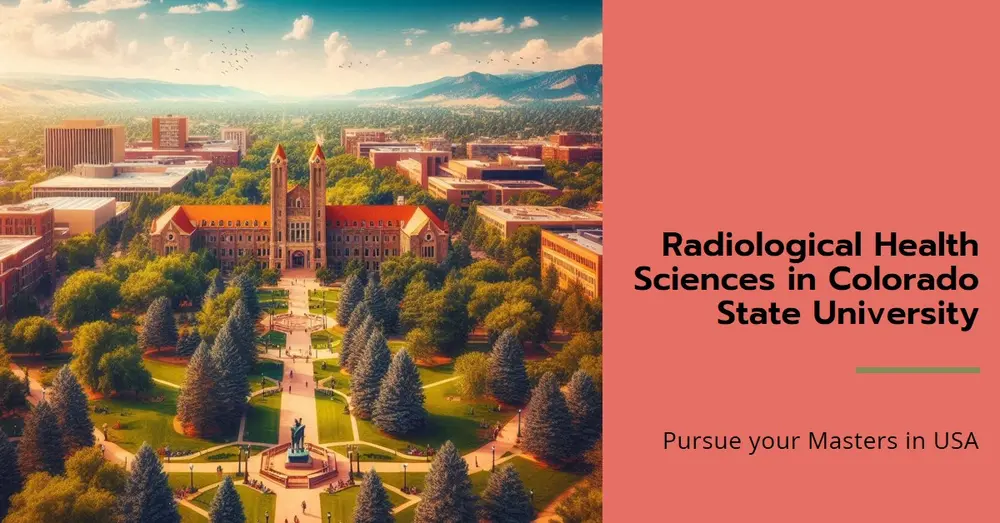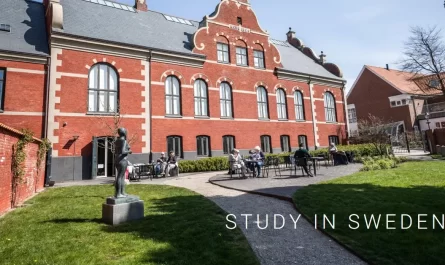“In the fight against cancer, the radiologist’s tools are as vital as the surgeon’s scalpel.” This is an anonymous saying that shows that shines a light on the importance of Radiology in fighting cancer. Did you know, according to the Bureau of Labor Statistics, the demand for medical imaging technologists is projected to grow by 6% from 2022 to 2032, much faster than the average for all occupations? This increase in demand highlights the value of pursuing a Masters in USA in fields like Radiological Health Sciences.
This growth is driven by the increasing use of imaging technologies in healthcare. If you’re looking for a stable and rewarding career in the medical field, studying Radiological Health Sciences in the USA could be the perfect path. Pursuing a Master’s in USA offers international students access to cutting-edge academic programs, such as Radiological Health Sciences at Colorado State University, where advanced studies in radiation protection and medical imaging open doors to rewarding careers in healthcare.
In this article, we’ll delve into the Colorado State University M.S. in Radiological Health Sciences program, discussing its curriculum, career prospects, and the immense value it brings to international students looking to study in USA for a fulfilling career in the healthcare sector.
Program Overview
The Radiological Health Sciences MS program at Colorado State University offers a comprehensive education in the field of radiological health, focusing on the science of radiation and its effects on human health.
As a student in this program, you will delve into advanced studies that encompass both theoretical and practical aspects of radiology, providing you with a robust foundation to excel in this critical field. The curriculum is designed to equip you with a deep understanding of radiation protection, radiobiology, and the medical applications of radiation.
Core subjects include radiation physics, radiation biology, radiation protection, and radiological assessment. You’ll learn about the interactions of ionizing radiation with biological systems, the principles of radiation dosimetry, and the methods for assessing and mitigating radiation exposure in various settings.
The program is taught with a mix of traditional classroom instruction, hands-on laboratory experiences, and independent research to ensure a well-rounded education. You’ll have the opportunity to work with advanced radiation detection and measurement equipment, engage in practical scenarios.
Also to participate in research projects that address real-world challenges in radiological health. These methods are designed to develop your critical thinking and problem-solving skills, essential for a successful career in this field.
The program offers both thesis and non-thesis options, allowing you to choose a path that aligns with your career goals. The thesis option is research-intensive and requires you to complete original research that contributes to the field of radiological health sciences.
On the other hand, the non-thesis option focuses more on coursework and may include a comprehensive final project instead of a thesis. The program typically takes 2 years to complete, depending on your course load and research progress. This timeframe includes both coursework and the completion of your thesis or final project.
By enrolling in this course, you will gain access to state-of-the-art facilities and a faculty composed of experts in the field.
The program’s focus on research and practical skills equips you to tackle complex radiological health issues, ideal for advancing careers in the field. Looking at the course in such detail leads one to wonder, what are some careers to look forward to after the course?
Let’s take a look at the upcoming section.
List of Careers to Pursue after Completing Masters Course in the USA
Earning a Masters in USA in Radiological Health Sciences opens doors to a range of career options. Some careers students can look forward to after the course include:
- Medical Physicist: They apply physics principles to the development and use of medical imaging and radiation therapy equipment. The average annual salary for this role is $1,15,000.
- Health Physicist: Health physicists specialize in radiation protection and ensure safe working conditions in environments that involve radiation. Average annual salary for this role is $95,000.
- Radiology Nurse: Radiology nurses provide patient care before, during, and after radiological procedures. The average annual salary for this role is $92,000.
- Radiology Research Scientist: Radiology research scientists conduct research to advance the field of medical imaging and radiation therapy. The annual average salary for this role is $90,000
- Radiology Administrator: Radiology administrators manage the operations of radiology departments in healthcare facilities. The annual average salary for the role is $88,154.
In conclusion, A Masters in USA in Radiological Health Sciences (M.S.) program at Colorado State University offers a comprehensive blend of academic rigor and practical experience, equipping you with the expertise needed to excel in the field of radiology.
As you navigate your study abroad journey, study abroad consultants can be invaluable, offering guidance on university selection, application processes, visa procedures, and even accommodation.
Their support ensures a smooth and successful experience at every stage. Whether you’re pursuing a career in radiology or considering a Masters in Hotel Management, their expertise can make all the difference.



